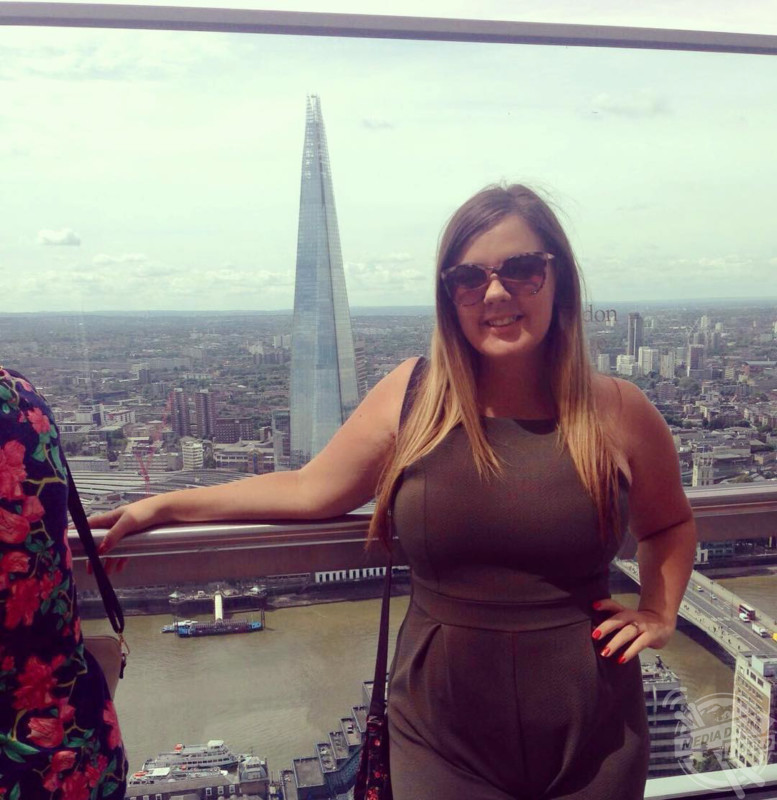By Liana Jacob
THIS WOMAN was left BLIND in one eye after doctors continuously failed to identify a brain tumour on her optic nerve and one GP even LAUGHED at her when she complained of severe migraines.
Customer case manager, Abbie Trinder (24), from Wednesbury, UK, had been suffering from severe migraines since 2015 but was turned away by doctors who didn’t believe her and told her to stay hydrated.
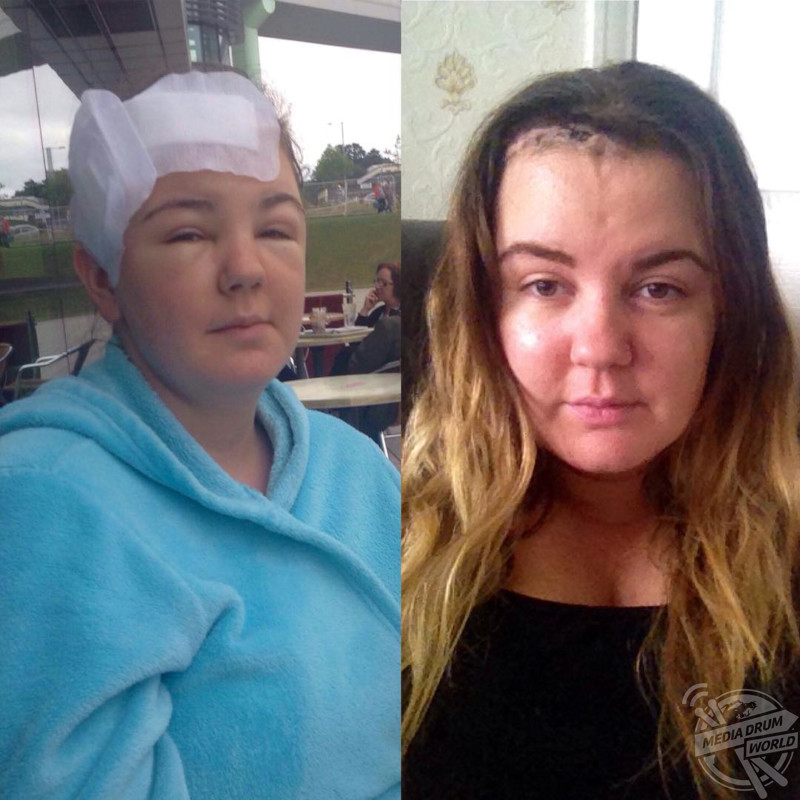
Abbie Trinder / MDWfeatures
It wasn’t until March 2016 when Abbie’s vision went blurry, she made an appointment with her opticians who urgently referred her to the hospital. After days of feeling frustrated, Abbie went to the hospital and was informed by her doctor that the problem wasn’t her eyes, it was her brain.
Weeks later, she was transferred to the Queen Elizabeth hospital in Birmingham and she found out that a benign brain tumour had been growing on her optic nerve and had now spread to her pituitary gland, which had been there for years and she became blind in her right eye.

Abbie Trinder / MDWfeatures
In August 2016, Abbie underwent a craniotomy, the surgical removal of part of the bone from the skull to expose the brain, which left 30 staples in her head. Only part of the tumour could be removed, as the complete removal may have caused more damage as it was growing on the nerves.
Despite the long and hard recovery process, Abbie is now completely healthy and has since started a new job and re-entered the social scene with her friends. She is now trying to raise awareness of the importance of eye tests.
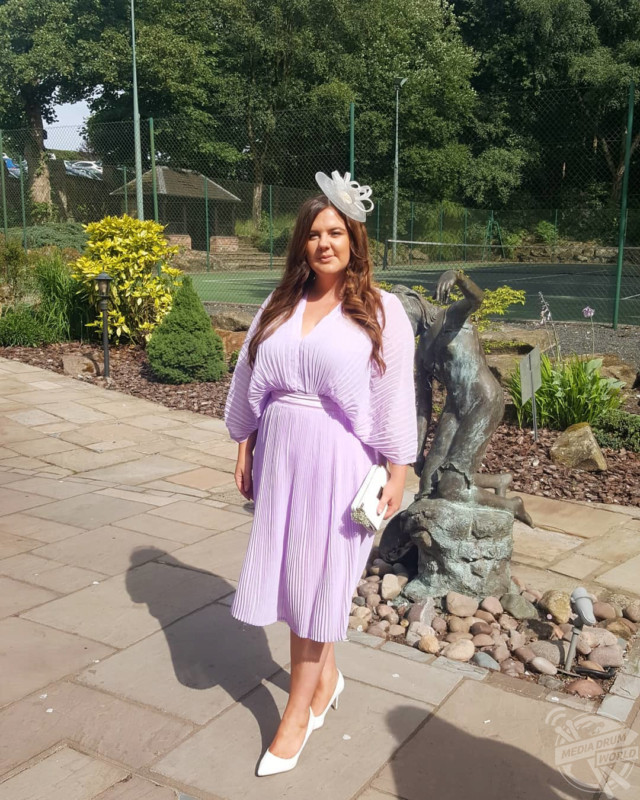
Abbie Trinder / MDWfeatures
“In March 2016, I had an appointment with the opticians. I’d been suffering from severe migraines for years prior to this,” Abbie said.
“Sadly, my doctor kept turning me away, and told me to ‘stay hydrated’ – on one of the occasions the GP laughed at me and told me I wouldn’t be sitting in front of him if I had a real migraine and I had recently noticed blurred vision on my right eye.
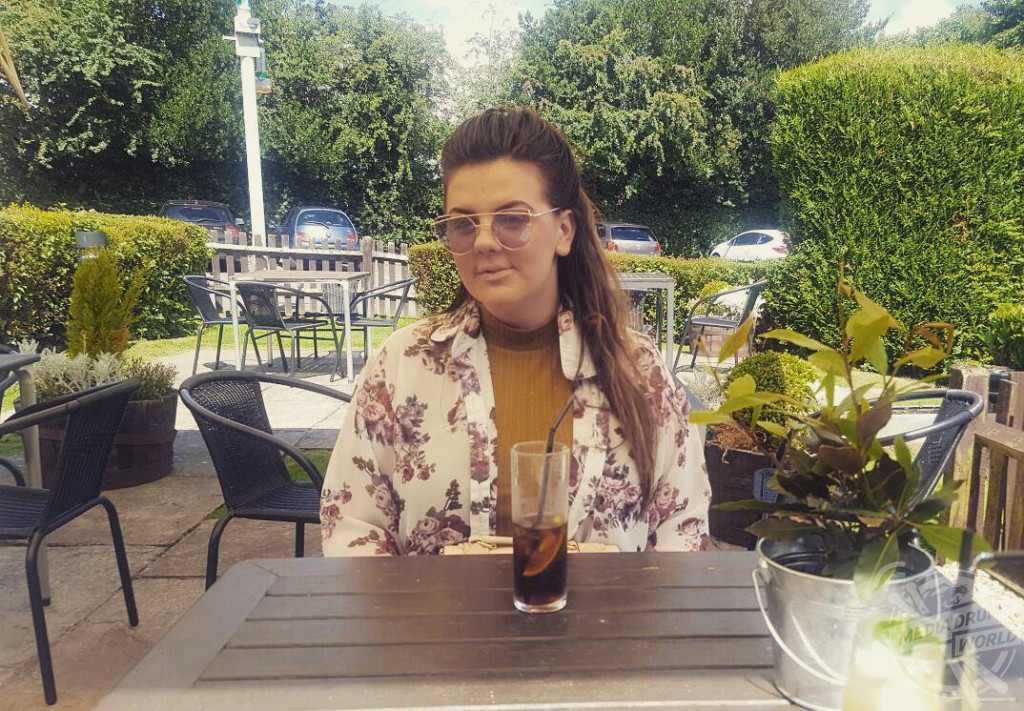
Abbie Trinder / MDWfeatures
“That morning, I’d walked into the opticians, convinced that I just needed glasses. It soon became apparent that this was not the case, when the optician gave me a letter and asked me to go to the hospital right away.
“I felt so frustrated, I didn’t understand what was going on. When I reached the hospital my frustration soon turned in to panic, as I was told ‘it’s not your eyes Abbie, it’s your brain’.
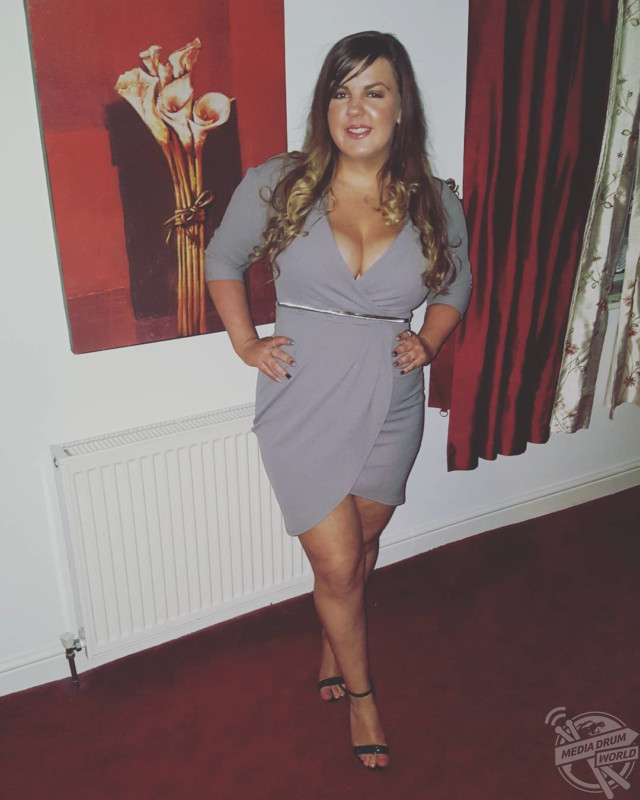
Abbie Trinder / MDWfeatures
“Weeks passed, and I was transferred from New Cross Hospital, Wolverhampton, to the Queen Elizabeth hospital in Birmingham.
“I found out that I’d got a benign brain tumour which had started growing on my optic nerve and had spread to my pituitary gland.
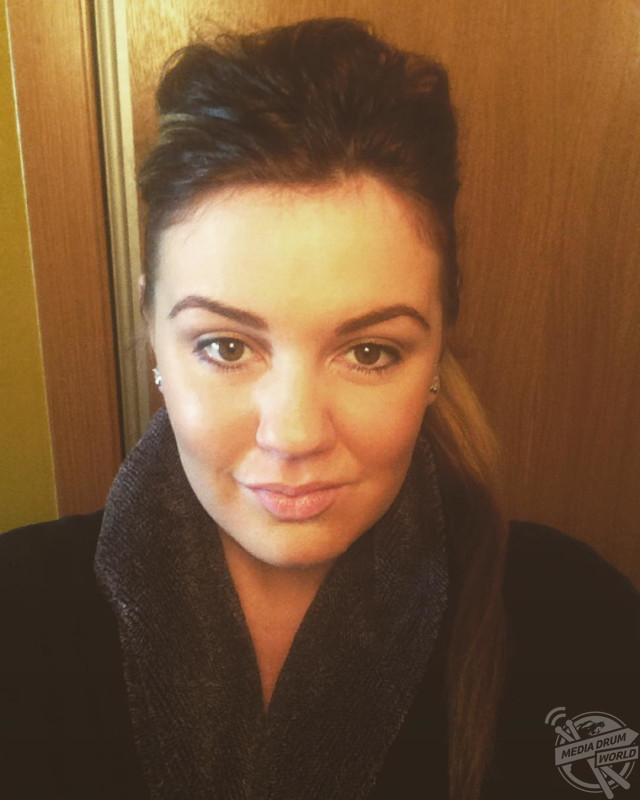
Abbie Trinder / MDWfeatures
“It had been there for years and now I have almost completely lost my sight in my right eye. I had my operation on the 18th August 2016, which left me with thirty staples in my head.
“They weren’t able to completely remove the tumour, as it was growing on the nerves and may have caused more damage to completely remove it.

Abbie Trinder / MDWfeatures
“The hospital staff were brilliant throughout and I can’t thank my consultant enough. It took a while for the swelling to go down, I thought I’d feel better once it did.
“Sadly, as the physical struggles got easier I began to battle with the emotional side of things and suffered mentally for months.
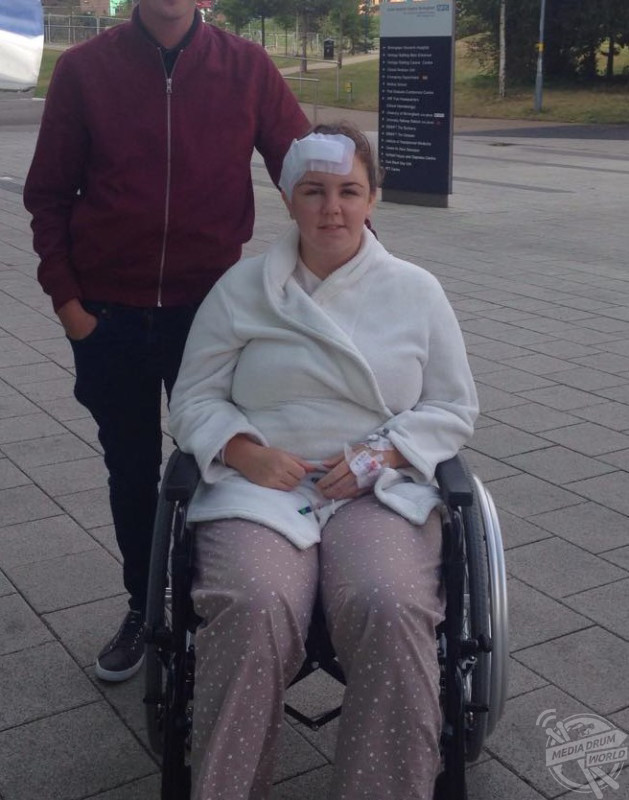
Abbie Trinder / MDWfeatures
“I was discharged from hospital five days later and able to go home, with my family keeping a close eye on me.
“The tumour is benign and very slow growing in comparison to malignant tumours. I have regular check-ups with the QE neurology department as well as with the ophthalmologist.
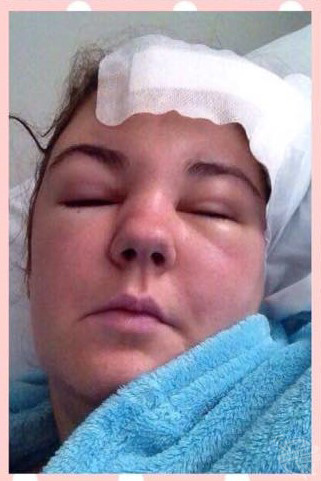
Abbie Trinder / MDWfeatures
“The tumour is continuing to grow and has damaged my optic nerve, causing me to lose almost all of my sight in my right eye and slight damage to my left eye, I expect it will deteriorate over time.”
Abbie explains that while knowing what was going on in her body was a relief, the recovery process from the surgery knocked her confidence.

Abbie Trinder / MDWfeatures
“Strangely, it was a relief to finally know what I had, after months of tests and scans, and being referred to New Cross hospital from the opticians and then to Queen Elizabeth hospital from there,” she said.
“I was ready for my operation and had prepared myself as best I could for the aftermath, however, I now know that it’s an impossible thing to prepare for.
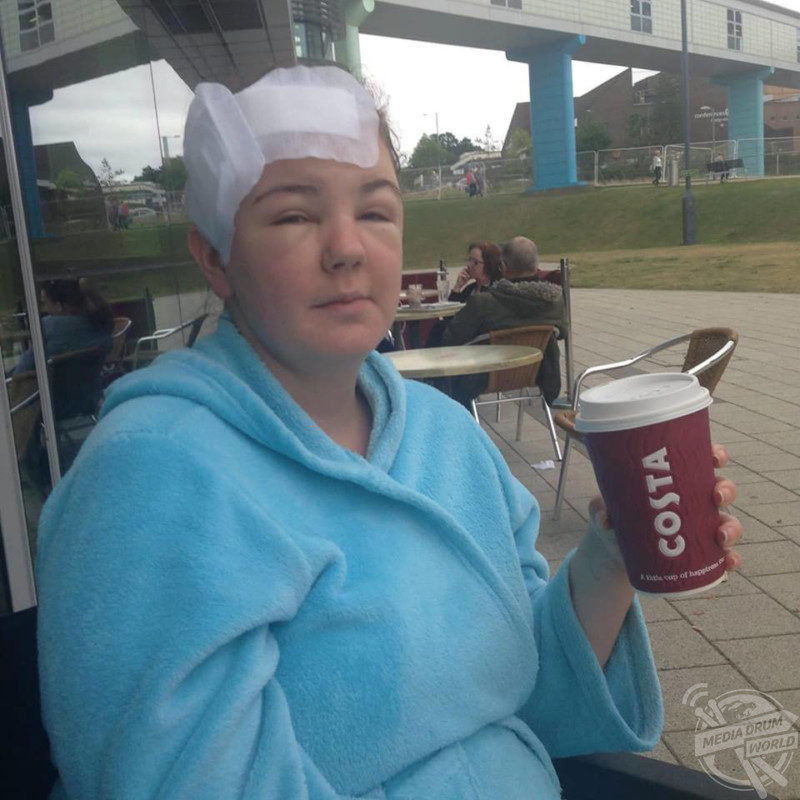
Abbie Trinder / MDWfeatures
“But during the recovery stage, I didn’t recognise myself in the mirror and I slept the weeks away. My face was swollen, particularly round my eyes and nose and I had no energy.
“I would only try to get myself changed or go up/down the staircase at home and I would get exhausted, even lifting myself out of the bath was a challenge.
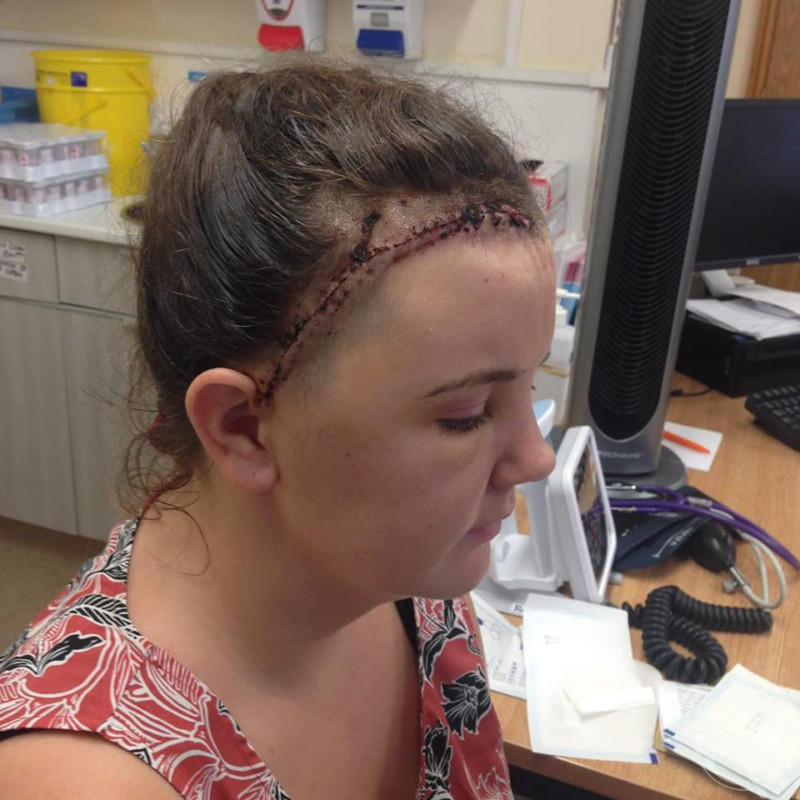
Abbie Trinder / MDWfeatures
“As I started to get weaned off my medication I slowly became slightly more energised each day (hit and miss), and then I suddenly faced emotional challenges.
“I’d gone from having everything; my own home, a fiancée, a job and a car, my health and a social life – to nothing.
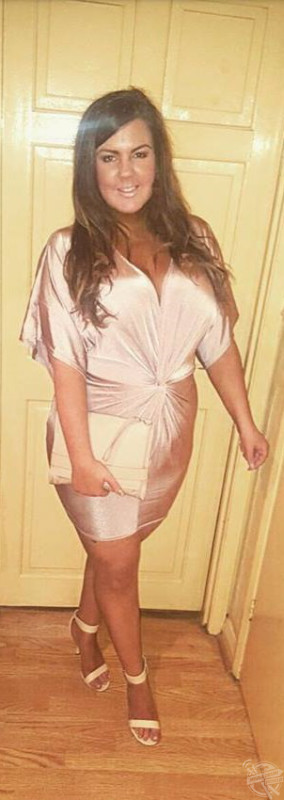
Abbie Trinder / MDWfeatures
“I had to move back in with my parents, I wasn’t fit to work, and I didn’t want to be sociable; I didn’t have the energy to be either.
“I’d get fatigued by just getting dressed and undressed, walking up and down the stairs and even lifting myself out of the bath took a lot of energy.
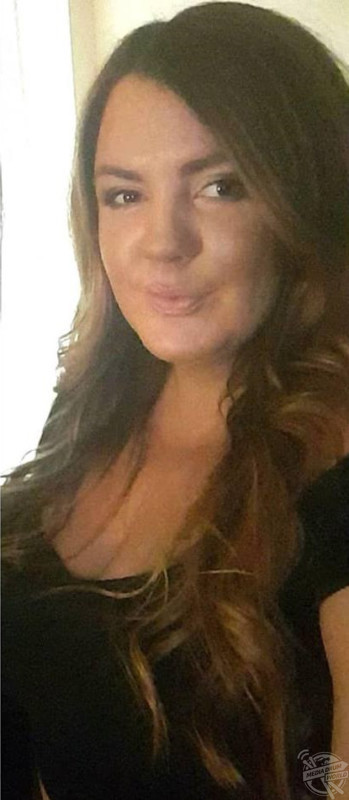
Abbie Trinder / MDWfeatures
“I wasn’t able to drive (temporarily) and I split up with my partner, as I struggled to deal with the way I was left feeling.
“Months on I decided enough was enough, there were people out there in a much worse position than I was in.
“I still had a loving home, and the most supportive family and friends (and savings, luckily). I was determined to turn this around, 2017 was going to be my year – and it was.
“Now, I appreciate life. I appreciate a lot; the good people, good memories, the things you can’t buy. I’m a lot more grateful for the things I have, and I feel happier than ever because of this.
“I’m a lot more cautious about my health, diet and exercise (selected exercises, as I’m conscious of pressure in my head).
“People who knew me were shocked, but I received so much support from so many people. People seemed interested in my story and how I’m doing, and many said I was an inspiration.
“I feel proud of what I’ve achieved, and I’m pleased with my new outlook on life. I feel better about the way I look (especially now that my hair has grown back and covers my scar).
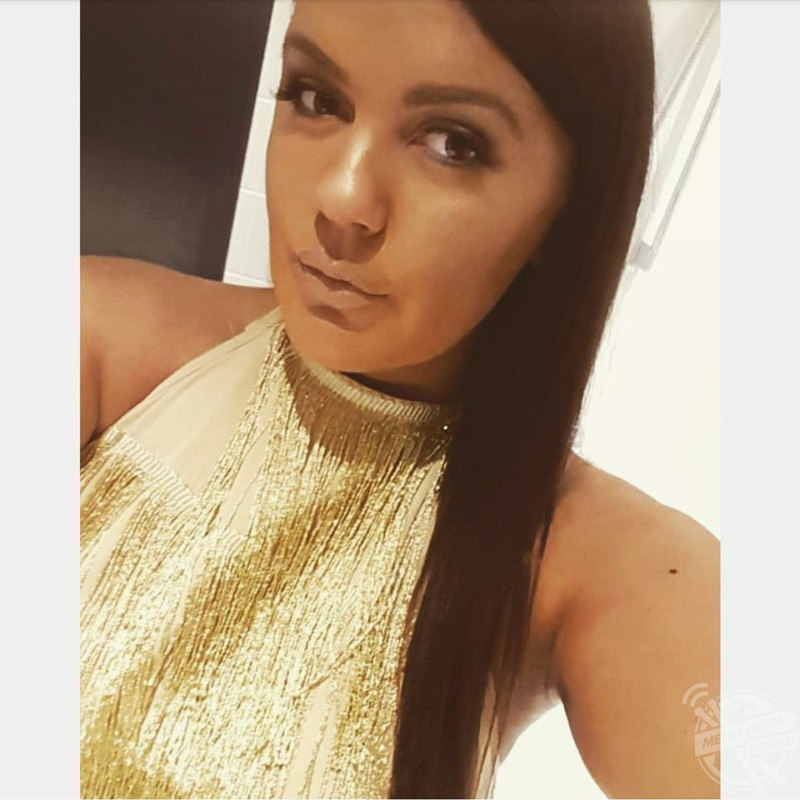
Abbie Trinder / MDWfeatures
“I’m grateful to Specsavers Walsall for acting the way they did. I was told ‘it’s a miracle you can see at all’ on the morning of my operation, so if it wasn’t for them there’s a chance I could be completely blind by now.
“It’s okay to not understand how you’re feeling or why you’re feeling the way you are – you’ve been through a lot.
“Speak to someone who’s been through a similar thing, let them know how you feel – they may be able to help. A problem shared is a problem halved.”

